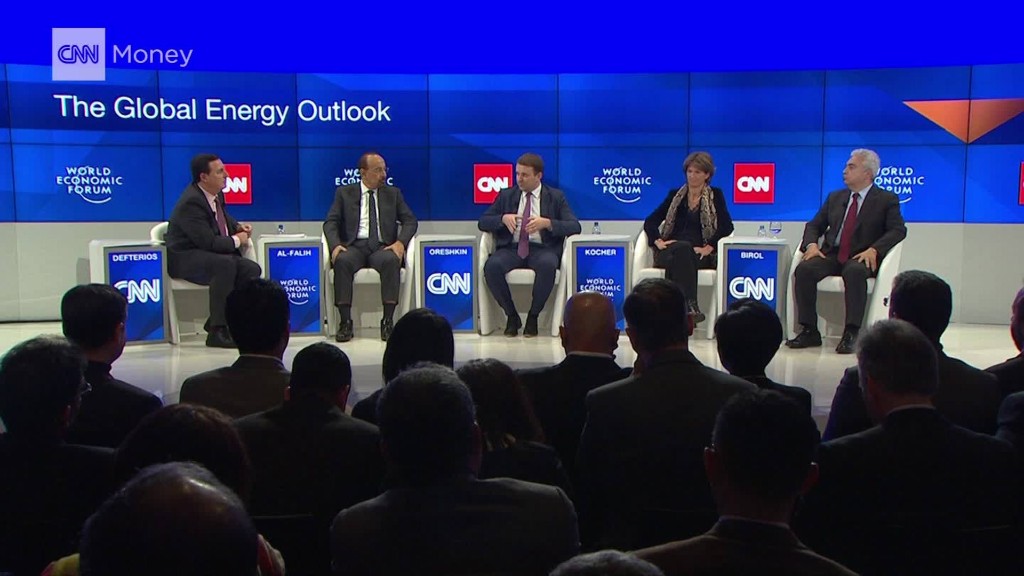
Saudi Arabia's oil minister says he is not worried about increased competition from the U.S.
"I don't lose sleep that shale is going to come and overwhelm us," Khalid al-Falih told CNNMoney's John Defterios at the World Economic Forum in Davos. "I don't think it will."
Al-Falih's comments underscore a dramatic shift in Saudi Arabia's energy policy.
Just two years ago, the de-facto leader of OPEC flooded markets with oil in an attempt to push other suppliers out of the market.
The decision in 2014 to keep the taps open caused prices to plummet and badly hurt the Kingdom's finances. It also succeeded in forcing some U.S. shale producers to put production on hold.
Related: The U.S. shale oil business is not dead
But it took a reversal of OPEC's stance -- a rare output cut including some producers outside the cartel last December -- to start reducing a huge supply glut.
Al-Falih now expects a shortage of supply by the end of the decade. And increased shale production is part of a solution that includes major investments in traditional drilling and exploration projects.
"There are still not investment flows going into projects," he said. "We hope that shale will recover to a reasonable degree, but it's not enough."
He's likely to get his wish. The International Energy Agency said Thursday that the U.S. shale industry is "much leaner and fitter" following the price collapse. The agency said more rigs are being pressed into action, with productivity that has "improved in leaps and bounds."
"Don't underestimate the shale oil production," Fatih Birol, the head of the IEA, said Thursday. "It may well put downward pressure on prices."
Related: Saudi Arabia warns Trump against banning oil imports
Al-Falih also addressed one of the hottest topics at Davos: Donald Trump.
The president-elect threatened earlier this year to halt imports of oil from Saudi Arabia and other Arab countries if they don't commit ground troops to fight ISIS, or at least reimburse the U.S. for its efforts.
More recently, investors have worried about the impact of a possible tariff or border adjustment tax on oil imports.
Al-Falih said that raising the cost of oil shipped to the U.S. would hurt the country's competitiveness, increase costs for consumers and raise cost of refined energy products such as gas.
"There are a lot of smart people within the Trump administration and team," he said. "Ultimately we have confidence that they will do the right thing."


